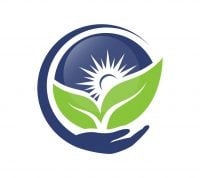Lifetime Counseling
Drug Rehab Center in Winder, Georgia
Lifetime Counseling in Winder, Georgia offers evidence-based addiction therapies and holistic treatment options to help individuals and their families recover from addiction and achieve a balanced lifestyle.
About Lifetime Counseling in Georgia
Lifetime Counseling in Winder, Georgia is a comprehensive addiction treatment facility offering individualized programs to help individuals and their families restore their lives to a healthy and happy state. Specializing in evidence-based addiction therapies, Lifetime Counseling is known for its comprehensive and compassionate care. They offer Outpatient Levels of Care with the option to upgrade to Inpatient if needed, and accept Private Health Insurance. In addition to traditional addiction therapies, Lifetime Counseling also offers a wide range of holistic treatment and therapeutic modalities which are designed to help clients achieve a balanced lifestyle while in treatment.
Lifetime Counseling provides an array of individualized and evidence-based addiction treatments for individuals struggling with Alcoholism, Opioid Addiction, Drug Addiction, and Substance Abuse. Their specialized program utilizes a variety of therapies to help individuals gain an understanding of their addiction and establish a successful recovery plan. Lifetime Counseling is accredited by The Joint Commission and is licensed by the Georgia Department of Behavioral Health and Developmental Disabilities. Their commitment to providing the highest quality of care is evidenced by their highly trained and experienced staff, dedicated to providing the best care possible.
Genders
Ages
Modality
Additional
Conditions and Issues Treated
With so many people addicted to opioids, we need to help those who want to quit. The cycle begins when opioid addicts take opioids for a painful injury. When someone starts taking their medication differently or in excess, it means they’re addicted and at risk of overdosing.
In , detoxing from these types of treatments is the most effective way to beat this. Most facilities begin with medical assistance and then provide counseling services; rehabilitation follows after successful treatment.
Levels of Care Offered
This center offers a variety of custom treatment tailored to individual recovery. Currently available are Outpatient, with additional therapies available as listed below.
Alcohol or drug addiction, or co-occurring disorders, are treated in an outpatient program. The patient must attend therapy and other programs at the facility but can return home each night.
Outpatient treatment allows recovering addicts to live at home while receiving addiction treatment. Outpatients can attend group sessions for a few hours per week. Outpatients may also continue to work full time and study/attend school without interruption if they choose.
Therapies & Programs
Different people react differently to various treatment options. Some drug rehabilitation centers offer individualized treatment that caters to the specific needs of a drug addict. The best treatment option varies on an individual depending on the type of drug abused, life history, medical condition of the person, social circumstances, and the environment they live in now.
When a person enters drug rehab, they usually have anti-drug associations such as withdrawal symptoms, stress, cravings, etc. The first step of drug rehab is to detoxify the body from any residual substances in it. Drug rehabilitation centers usually employ trained medical professionals to help in this process. Usually, the initial detoxification lasts for five days, where the person is monitored under close supervision.
Couples therapy is a treatment method used to help couples in which at least one member of the couple has a drug addiction. The treatment is designed to help the couple strengthen their relationship to minimize the effects of drug addiction on their lives and promote healthy communication between them.
Couples therapy can be used whether the addicted partner is using drugs or in recovery. It helps the couple create healthy communication and coping skills to minimize the problem-solving abilities of one partner, which can then be directed at solving issues related to their addiction. It also helps couples address problems that may be related to drug addiction. Couples therapy can help couples feel like a team and not feel like their partner is the problem.
Couples therapy is very challenging for both the drug addict and their partner. It requires an intense commitment between the two individuals to participate in the sessions and the homework assigned between sessions.
An additional benefit of couples therapy is that it can help make other types of treatment, such as 12-step programs, more effective.
Family therapy sessions typically involve the addict and their family members. During these sessions, a therapist will work with everyone involved to help them understand addiction and find healthy ways of coping without substance abuse.
Some addicts might feel embarrassed about their substance abuse problems. By encouraging family members to attend these sessions, therapists can show addicts that they’re not alone in dealing with addiction. Therapists can also work with family members to help them understand addiction and learn how to offer support and encouragement to their loved one as they deal with substance abuse issues.
Attending group therapy at Lifetime Counseling in , is a useful way for those seeking sobriety to realize they aren’t the only one going through it.
This is when a group of people on different recovery phases get together and talk about what they’re going through, their triggers, successes, and failures. This can include alternative types of therapies too! Group therapy may occur on an outpatient or inpatient basis with groups that have no pre-existing relationships outside the session, unlike support groups where everyone already knows each other beforehand.
Trauma therapy is a form of therapy used to help people process and understand past traumas. This can help struggling addicts, as many people turn to drugs or alcohol to mask the pain of their past. Trauma therapy can be done in several ways, such as through visualization, discussion, and writing down thoughts and feelings. The goal is to help the individual understand why they are having problems coping with certain situations and changing how they think and react to things. This is often done in tandem with other therapies to treat the underlying issues associated with addiction.
The idea behind trauma therapy is that while some people can experience traumatic events and not have lasting psychiatric symptoms, many others will. In these cases, memories get hidden from consciousness but continue to influence how the person processes and copes with things in their life. They may avoid situations that resemble what happened or become suddenly angry or irritated to a situation that reminds them of a past event. With the help of a therapist, people can go back over memories and experiences. This helps them understand why they are having problems coping with certain situations and changing how they think and react to things.
Cognitive Behavioral Therapy is a type of psychotherapy that helps people address the thoughts and behaviors that may have led to their addiction. It also helps change negative thoughts into positive ones and promotes healthy communication between addicts and those around them. CBT is an efficient treatment for individuals suffering from all sorts of addictions.
Cognitive Behavioral Therapy (CBT) focuses on the underlying thoughts and behaviors that caused the problem of addiction in the first place and may cause a relapse. Negative feelings are common in drug abuse disorders, but they can lead to co-occurring disorders if not recognized. CBT involves strategies that help to change the behavior pattern by restructuring negative thoughts into positive ones. It helps to remove these feelings, and it provides long-term benefits. Also, CBT promotes self-awareness, self-control and can be administered as a mono-therapy or as part of combination therapy.
Life Skills Services offered at Drug Treatment Centers assists addicts in their recovery by teaching them healthy coping mechanisms that will aid them in becoming sober, focussing on helping people enter into, and maintaining long-term sobriety. Drug Treatment Centers provide Life Skills Services at varying levels of intensity, specific to the needs and requirements of each patient.
Life Skills Services offered at Drug Treatment Centers assists addicts in their recovery by teaching them healthy coping mechanisms that will aid them in becoming sober, focussing on helping people enter into, and maintaining long-term sobriety. Lifetime Counseling in Winder, Georgia provide Life Skills Services at varying levels of intensity, specific to the needs and requirements of each patient.The benefits of Life Skills Services offered at Drug Treatment Centers:
- Restores hope and empowerment — Helps addicts believe that recovery is possible and instills a new confidence in their ability to achieve a positive, drug-free future
- Enhances family involvement — Encourages families to get involved in the recovery process and supports their understanding and encouragement of healthy behavior.
- Increases patient’s compliance — Helps patients take responsibility for and ownership of their recovery and encourages continued progress
- Reduces relapse rates — Encourages long-term abstinence and emphasizes the importance of establishing sober support systems.
Payment Options Accepted
For specific insurance or payment methods please contact us.
Is your insurance accepted?
Ask an expert, call (888) 674-0062
Additional Details
Specifics, location, and helpful extra information.
Winder, Georgia 30680 Phone Number(678) 425-9007 Meta DetailsUpdated November 25, 2023
Staff Verified
Lifetime Counseling Patient Reviews
There are no reviews yet. Be the first one to write one.
Winder, Georgia Addiction Information
Prescription opioid use has caused a large increase in the total amount of overdoses in Georgia. Almost 12% of the Georgia population uses illicit drugs each year, and slightly over 3.5% also abuses alcohol at the same time. This does not include those who binge-drink at least once a month, which includes 20% of all Georgians.
Treatment in Nearby Cities
- Americus, GA (136.2 mi.)
- Fort Benning, GA (134.2 mi.)
- Hopkinsville, GA (119.1 mi.)
- Chauncey, GA (136.0 mi.)
- Tifton, GA (176.3 mi.)
Centers near Lifetime Counseling
The facility name, logo and brand are the property and registered trademarks of Lifetime Counseling, and are being used for identification and informational purposes only. Use of these names, logos and brands shall not imply endorsement. RehabNow.org is not affiliated with or sponsored by Lifetime Counseling.





